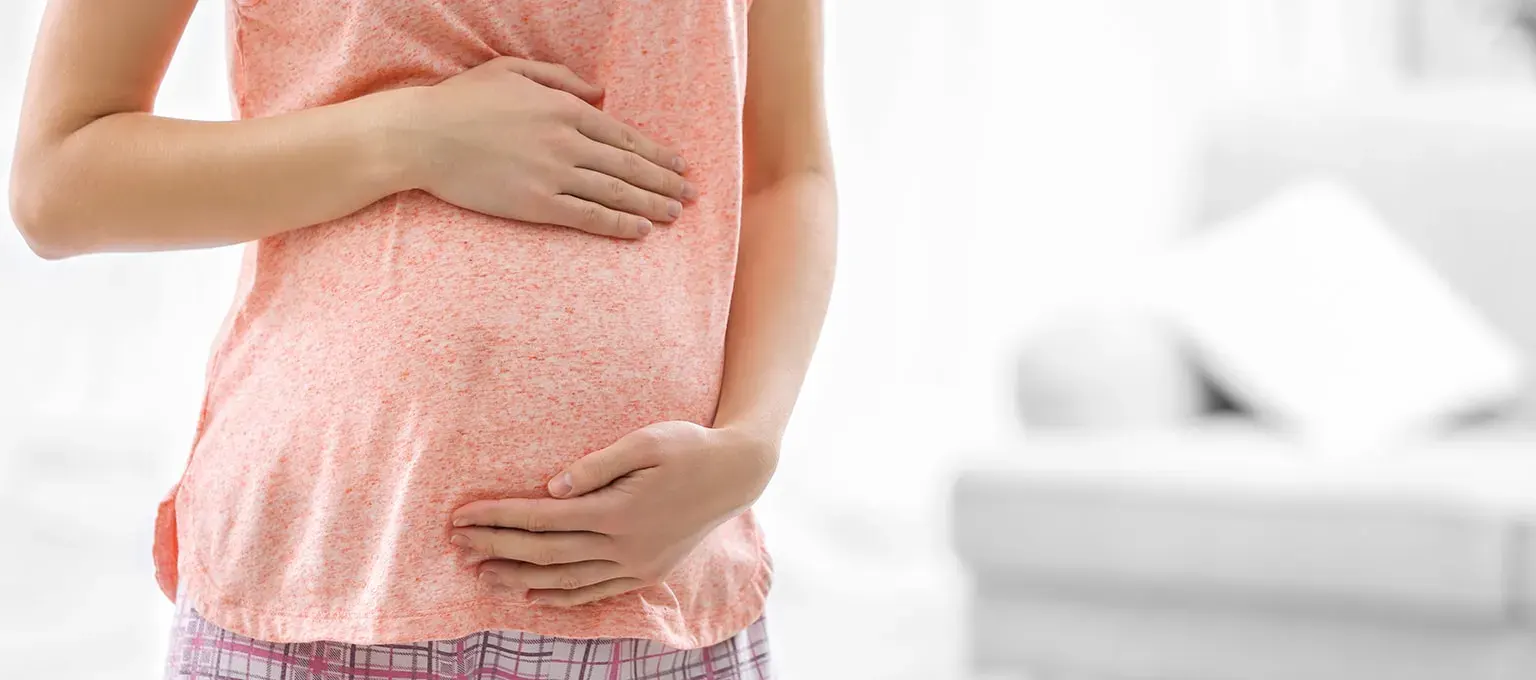Diarrhoea During Pregnancy: What You Need to Know
Diarrhoea isn’t the most pleasant topic to discuss, but it’s a common experience that everyone faces from time to time, including expectant mothers. While diarrhoea during pregnancy can be uncomfortable, it’s usually not a cause for concern.
In some cases, loose motion during pregnancy may indicate preterm labour, but more often than not, it’s caused by dietary changes, food sensitivities, or mild infections. Understanding the causes, treatment options, and warning signs can help you manage symptoms safely. Read on to learn more about what triggers diarrhoea during pregnancy, how to find relief, and when to seek medical advice.
Diarrhea Symptoms
The most common symptoms indicating diarrhea or related to diarrhea include
loose and watery stools
an urgent need for a bowel movement
abdominal pain or cramping
feeling gassy or bloated
nausea
having blood in your stool
fever.
Diarrhea in Early Pregnancy
Although diarrhea isn’t a sign of early pregnancy, it's possible that you may experience diarrhea or other digestive issues in your first trimester.
Early on in your pregnancy, your body starts going through lots of changes, and these can affect your bowel movements, leading to either hard or loose stools. For example, as levels of the hormone progesterone increase, this can cause your digestive system to slow down, often leading to constipation.
Changes to your diet and nutrition as part of your pregnancy may result in changes in your bowels, too. For instance, if you’re eating more fiber now or taking prenatal vitamins, these changes can affect the frequency and consistency of your bowel movements.
For some people, consuming more fiber-rich foods — such as fruits, vegetables, and whole grains — can help with constipation, but for others such a sudden change in diet can cause gas, cramping, and even diarrhea.
Drinking more water can help with constipation, and can help replenish the fluids lost by having diarrhea. Talk to your healthcare provider if you’re having trouble with any digestive issues such as bloating or diarrhea in early pregnancy.
If you’re in the early stages of pregnancy and wondering when your little one is due, use our Due Date Calculator to get an estimate.
Diarrhoea Symptoms During Pregnancy
Diarrhoea is characterised by frequent, watery stools that occur three or more times a day. In pregnancy, it can be accompanied by other symptoms, including:
Abdominal cramps or bloating
Urgent bowel movements
Nausea or vomiting
Mild fever (if caused by an infection)
Dehydration symptoms (dry mouth, dizziness, fatigue, dark urine)
Loss of appetite
While occasional loose motion in pregnancy is common, persistent diarrhoea lasting more than two days can lead to dehydration and electrolyte imbalances, which may require medical attention.
Loose Motion in Early Pregnancy: Why it Happens
During the first trimester, many women experience loose motion in early pregnancy due to several factors, including:
1. Hormonal Changes
Pregnancy triggers a surge in progesterone and estrogen, which slow digestion in some women, causing constipation. However, in others, it can have the opposite effect, leading to diarrhoea in early pregnancy.
2. Dietary Changes
Pregnant women often shift to a healthier diet rich in fruits, vegetables, and fiber, which can sometimes upset digestion and result in loose motion during pregnancy.
3. Prenatal Vitamins and Supplements
Some prenatal vitamins, iron supplements, and magnesium-rich foods can alter digestion, leading to diarrhoea in early pregnancy. If you notice that your supplements are affecting your bowel movements, consult your doctor about possible alternatives.
4. Increased Sensitivity to Foods
Pregnancy alters taste preferences and digestion, making some women more sensitive to dairy, spicy foods, or fatty meals, which can trigger loose motion in early pregnancy.
5. Stress and Anxiety
Pregnancy-related stress can impact gut health, leading to digestive issues, nausea, and diarrhoea. Practicing relaxation techniques like deep breathing and prenatal yoga can help manage stress-induced loose motion during pregnancy.
Loose Motion During Late Pregnancy: Is It a Sign of Labour?
Experiencing loose motion during late pregnancy can sometimes indicate that labour is near. As the body prepares for childbirth, hormonal changes loosen the bowels, helping to clear the system before delivery.
How to Tell if Loose Motion is a Sign of Labor?
If diarrhoea while pregnant occurs along with the following symptoms, it may indicate labor is approaching:
Regular contractions that increase in intensity
Lower back pain that does not go away
Water breaking (rupture of membranes)
"Bloody show" (mucus discharge with slight blood)
However, not all cases of diarrhoea in late pregnancy are a sign of labour. It can also be caused by dietary changes, mild infections, or prenatal stress. If you experience persistent or severe loose motion during pregnancy, consult your doctor to rule out any risks.
Common causes of diarrhoea during pregnancy
Several factors can trigger diarrhoea while pregnant. Understanding these causes can help prevent and manage digestive issues.
1. Hormonal Changes
Pregnancy hormones can slow or speed up digestion, leading to loose motion in early pregnancy or later stages.
2. Sudden Dietary Adjustments
Switching to a fibre-rich or high-protein diet can sometimes cause a temporary digestive upset.
3. Prenatal Vitamins
Some iron supplements and prenatal vitamins can affect digestion, resulting in constipation or diarrhoea.
4. Lactose Intolerance
Some pregnant women develop temporary lactose intolerance, leading to bloating and loose motion during pregnancy after consuming dairy.
5. Food Poisoning or Infections
Consuming contaminated food or water can introduce bacteria, viruses, or parasites, causing severe diarrhoea while pregnant. Symptoms may include fever, vomiting, and dehydration.
6. Gastrointestinal Disorders
Pre-existing conditions like Irritable Bowel Syndrome (IBS), Crohn’s disease, or celiac disease may worsen during pregnancy, leading to frequent loose motion.
7. Artificial Sweeteners
Consuming sugar substitutes found in diet sodas and sugar-free snacks can have a laxative effect, triggering loose motion during pregnancy.
Managing Diarrhoea and Dehydration During Pregnancy
If you're experiencing diarrhoea while pregnant, staying hydrated and restoring lost nutrients is crucial. Here’s how to manage it safely:
1. Drink Plenty of Fluids
To prevent dehydration, drink:
Water (sipped throughout the day)
Coconut water (natural electrolytes)
Oral Rehydration Solutions (ORS) for severe diarrhoea
Clear broths and herbal teas
2. Follow the BRAT Diet
The BRAT diet (Bananas, Rice, Applesauce, and Toast) helps firm up stools and ease digestive discomfort.
3. Eat Probiotic Foods
Yogurt and fermented foods help restore good gut bacteria, improving digestion. These include plain yogurt, Greek yogurt, idli, dosa, dhokla, kimchi, sauerkraut, kefir, kombucha, miso, tempeh, and pickled vegetables.
4. Avoid Dairy, Spicy, and Fried Foods
These foods can irritate the stomach and worsen diarrhoea.
Dairy Products – Milk, cheese, and cream-based foods can be hard to digest and may worsen diarrhoea. Opt for lactose-free milk or probiotic-rich yogurt for a gentler alternative.
Spicy Foods – Items like chilli-based curries and spicy chutneys can irritate the stomach. Stick to mildly seasoned dishes to avoid discomfort.
Fried Foods – Snacks like samosas, pakoras, and French fries are heavy and difficult to digest. Choose steamed, grilled, or boiled options for a lighter meal.
5. Rest and Reduce Stress
Getting plenty of rest allows the body to recover faster. Stress management techniques like meditation and gentle yoga can also help prevent digestive discomfort.
Preventing loose motion during pregnancy
Although loose motion during pregnancy is common, taking preventive measures can help reduce the frequency of digestive issues.
1. Maintain a Balanced Diet
Eat a well-balanced diet rich in fiber, lean proteins, and whole grains, but avoid sudden, drastic changes.
2. Drink Clean, Safe Water
Always consume filtered or boiled water to prevent infections. Avoid street food that is unclean.
3. Eat in Moderation
Overeating, especially in one sitting, can stress the digestive system. Eat small, frequent meals instead.
4. Wash Fruits and Vegetables Properly
Raw produce can contain harmful bacteria. Wash thoroughly before eating.
5. Manage Stress
Engage in gentle prenatal exercises, meditation, or breathing exercises to maintain gut health.
6. Avoid Artificial Sweeteners and Processed Foods
Sugar substitutes and junk food can cause digestive issues, leading to loose motion during pregnancy. Avoid or restrict consumption of such foods.
When to See Your Healthcare Provider
It’s time to see your provider if
your diarrhea lasts for more than two days
you’re dehydrated
you have severe abdominal pain or rectal pain
you pass bloody or black stools
you have a fever of 101 degrees Fahrenheit or higher.
Final Thoughts
Experiencing loose motion during pregnancy is common and often not a cause for concern. It can occur due to hormonal shifts, dietary changes, stress, or infections. While mild diarrhoea usually resolves on its own, persistent or severe diarrhoea while pregnant should be monitored to prevent dehydration.
By staying hydrated, eating the right foods, and avoiding common triggers, you can manage loose motion in early pregnancy and later stages safely. If symptoms last for more than two days or are accompanied by severe cramps, fever, or dehydration, consult a doctor for proper care.
Pregnancy is a beautiful journey, and managing minor discomforts like diarrhoea with simple lifestyle adjustments can help you enjoy it with greater comfort and ease.
FREQUENTLY ASKED QUESTIONS
Changes in your bowel movements during pregnancy can be normal. For example, diarrhea might be caused by stress, a change in diet, or hormonal changes. But check with your healthcare provider to help pinpoint the cause of your condition.


